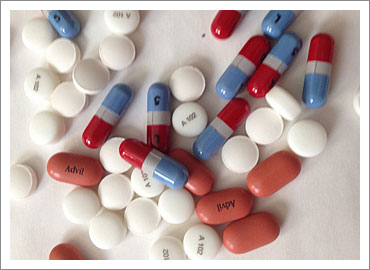"patients" entries

The Direct Project has teeth, but it needs pseudonymity
How patient pseudonyms can inspire trust in the Direct Project's network.
Yesterday, Meaningful Use Stage 2 was released.
You can read the final rule here and you can read the announcement here.
As we read and parse the 900 or so pages of government-issued goodness, you can expect lots of commentary and discussion. Geek Doctor already has a summary and Motorcycle Guy can be expected to help us all parse the various health IT standards that have been newly blessed. Expect Brian Ahier to also be worth reading over the next couple of days.
I just wanted to highlight one thing about the newly released rules. As suspected, the actual use of the Direct Project will be a requirement. That means certified electronic health record (EHR) systems will have to implement it, and doctors and hospitals will have to exchange data with it. Awesome.
More importantly, this will be the first health IT interoperability standard with teeth. The National Institute of Standards and Technology (NIST) will be setting up an interoperability test server. It will not be enough to say that you support Direct. People will have to prove it. I love it. This has been the problem with Health Level 7 et al for years. No central standard for testing always means an unreliable and weak standard. Make no mistake, this is a critical and important move from the Office of the National Coordinator for Health Information Technology (ONC).

Why microchips in pills matter
Microchips embedded in pills can ease medicine management and empower patients.
 Earlier this week, Proteus announced that they have been approved by the FDA to market their ingestible microchips for pills.
Earlier this week, Proteus announced that they have been approved by the FDA to market their ingestible microchips for pills.
Generally, the FDA approval process for devices that are totally new like this is a painful one, with much suffering. So it is a big deal for anyone to get approved for anything.
But this is a far more important accomplishment than a mere incremental improvement. It is an entirely new kind of medical device and, most importantly, a whole new potential data stream on one of the most critical issues in the delivery of health care.
Modern drugs work wonders, but it does not help a patient if the patient does not take them. Historically, and I do mean the stone age here, the ability to consistently take pills correctly has been called “compliance.” But please do not call it that. Most participants in the movement for patient rights regard that term as paternalistic.
“Adherence” is a much more respectful term (although I have certainly heard it used in a paternalistic manner). In fact, as we progress, I should define that when I say “adherence,” what I mean is “adherence to a plan that belongs to the patient.” If a pill that I am taking makes me so sick to my stomach that I cannot take it any more, then when I decide to stop taking it, I am not being “non-compliant” or “non-adherent” to a medication plan; I have changed my medication plan, and I have yet to discuss the issue with my doctor.
Still, even for patients who want to consistently take their pills according to a plan, it can be extraordinarily difficult. It is hard to remember when a pill has been taken. It is hard to remember to pick up a new supply or to call for a renewal. It is easy to forget pills on trips and run out unexpectedly far from home. Pills frequently must be taken with food, or without food, or with or without specific foods. They must be taken before bed or before breakfast. Personally, I have trouble remembering to take even a single pill consistently. But many people need to manage a tremendous number of pills, and they frequently go off one set of pills and onto another. In short, pill management is a huge mess, and it is difficult to organize anything.

Preview of HIMSS 2012
Collaboration, trust in platforms, and application of social media are key health IT trends.
Brian Ahier says we're at a pivotal moment for healthcare and health IT. Many of the core issues that will shape these domains in the years to come will be discussed at the upcoming Healthcare Information and Management Systems Society (HIMSS) conference.